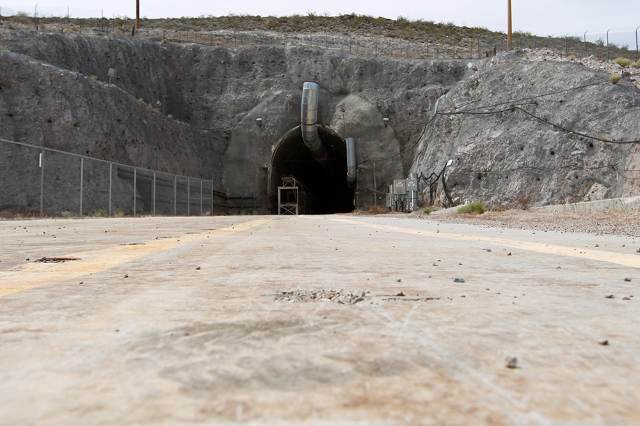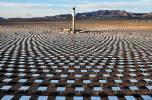NRC report says Yucca Mountain project wouldn’t be much of a health risk
WASHINGTON — An environmental report issued Thursday threw another log on the fire over the controversial Yucca Mountain project.
Staff at the Nuclear Regulatory Commission said in the draft study that a nuclear waste repository at the Nevada site would yield "only a negligible increase" in health risk from radioactive particles that might leak into groundwater.
The study said the environmental impact from potential contaminants would be small compared to normal background radiation.
The nuclear safety agency plans public hearings in Washington and Nevada next month on the draft. The 173-page report, a supplement to an earlier Department of Energy study, triggered the latest scuffle between Yucca supporters and opponents.
The NRC performed the study with dwindling funds in its nuclear waste account after President Barack Obama mothballed the Yucca Mountain project, about 100 miles northwest of Las Vegas, in 2010. Yucca supporters pointed to it as evidence the project should be resurrected.
Rep. John Shimkus, R-Ill., said the report "continues to affirm that Yucca Mountain is the best option to manage spent nuclear fuel."
Officials in Nevada, which has fought the project for decades, were quick to criticize the report.
"It's an exciting day. Another defective document has come out," said Robert Halstead, director of the Nevada Agency for Nuclear Projects. Halstead argued the study is flawed in part because it is based on information and assumptions about the site he said were outdated.
"This report is simply a waste of energy and resources," said Rep. Dina Titus, D-Nev.
Meanwhile, the Yucca project leaked into the Nevada race for U.S. Senate. Rep. Joe Heck, the Republican candidate, said if authorities conclude Yucca Mountain is safe for nuclear waste, there's little the state can do to block it.
"If the federal government says it's coming, its coming," Heck said in a campaign interview Wednesday with the Nevada Appeal in Carson City.
Heck's campaign did not comment further on Thursday. The remarks appeared to reflect the shift by some Republicans and rural county officials away from the "fight at all costs" strategy that Nevada has pursued since the 1980s.
The NRC study released Thursday was based on groundwork the Department of Energy performed when it applied for a repository license in 2008. It concluded potential impacts from radioactive material in groundwater would be small.
"Based on conservative assumptions … the NRC staff expects the estimated radiation dose would contribute only a negligible increase in the risk of cancer or severe hereditary effects in the potentially exposed population" living southwest of Yucca Mountain and into Death Valley, the report said.
The study concluded the maximum dose of potential contamination in Amargosa Valley would be 1.3 millirems, which it said was "a small fraction" of normal background radiation of 300 millirems a year, and "much less" than NRC standards.
Contact Review-Journal Washington Bureau Chief Steve Tetreault at stetreault@reviewjournal.com or 202-783-1760. Find him on Twitter: @STetreaultDC




























